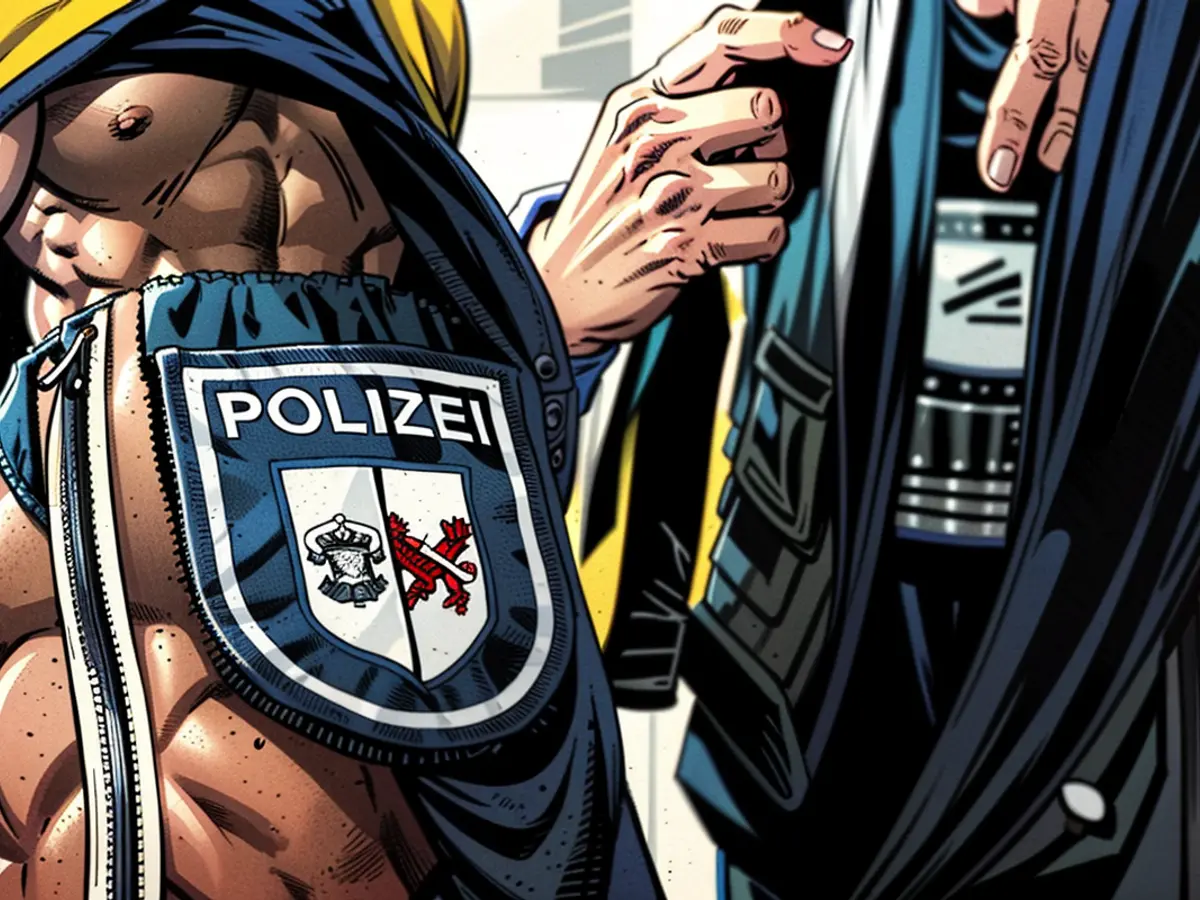delivery issues - Police are waiting for uniforms - are the Huthis responsible?
The Police force in Mecklenburg-Vorpommern is facing supply issues with uniforms for its officers. By the end of June, there were delivery delays for 13 articles, ranging from badges to uniform trousers. This information was disclosed in the state government's response to a query from the chairman of the AfD state parliamentary faction, Nikolaus Kramer.
The missing items included 287 pieces of "Mecklenburg-Vorpommern" blue lapel badges, 44 blue Softshell jackets for men, and 61 pieces of "POLICE" breastplates for jackets. The list of delayed orders also included 50 pairs of tactical gloves, 40 black T-shirts with the "Police" inscription, 24 warning vests, and 12 "paris-blue, Aramid" tactical blouses. The deliveries were predicted to be several weeks late.
Attacks by Yemeni Huthi Rebels
The statement from the Landespolizei Mecklenburg-Vorpommern indicated that all departments were affected. "Given the small quantities and foreseeable delivery dates, no problems with the provisioning of the police with uniforms, including the initial uniforms for recruits, are currently anticipated," it said.
The Landesregierung attributed the delivery delays mainly to disruptions in the supply chain. "For instance, the attacks by Yemeni Huthi Rebels on cargo ships in the Red Sea led German shipping companies to reroute their ships around the Cape of Good Hope instead of using the Suez Canal, resulting in longer transport times," it stated.
Niedersachsen orders for several federal states
Kramer found the statements of the Landesregierung reassuring. "Whether 'supply crunch' or 'delivery delays': missing uniforms may lead to a lack of readiness for deployment," he criticized. Uniforms and insignia should always be available in sufficient quantities. He was surprised, however, that Interior Minister Christian Pegel (SPD) was sourcing from overseas for cost reasons and then blamed delivery problems on Yemeni Huthi Rebels. "Local 'Made in Germany' production may be more expensive, but the transport routes are shorter, and the responsibilities are more transparent," Kramer remarked.
According to the Landesregierung, Mecklenburg-Vorpommern, in cooperation with Niedersachsen, Hamburg, Schleswig-Holstein, Bremen, and Thueringen, covers its requirements for police uniforms and protective clothing at the Logistikzentrum Niedersachsen. The basis for this cooperation is an existing administrative agreement from 2004. The Logistikzentrum is a state enterprise of the state of Niedersachsen.
- Despite the delivery delays affecting the Police force in Mecklenburg-Vorpommern, the AfD's Nicholas Kramer found the Landesregierung's explanation reassuring.
- The delayed deliveries of uniform items in Germany, including badges and trousers, were partly attributed by the Landesregierung to disruptions in the supply chain caused by attacks by Yemeni Houthi Rebels.
- In light of the supply issues and delivery delays, Kramer criticized Interior Minister Pegel for sourcing uniforms and insignia from overseas for cost reasons, blaming delivery problems on the Houthi Rebels.
- To meet their requirements for police uniforms and protective clothing, Mecklenburg-Vorpommern, along with several other federal states, collaborates with Niedersachsen at the Logistikzentrum Niedersachsen.
- The AfD's chairman, Nikolaus Kramer, suggested that while locally produced uniforms might be more expensive, they offer shorter transport routes and more transparency in responsibilities.








